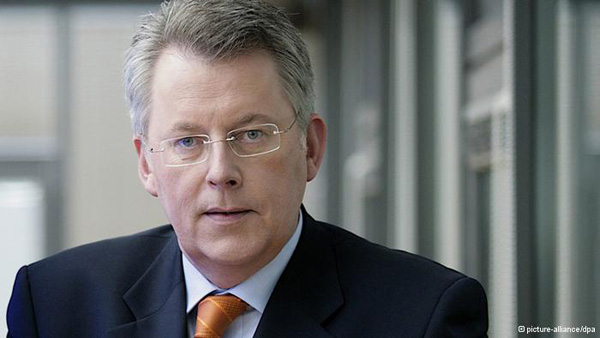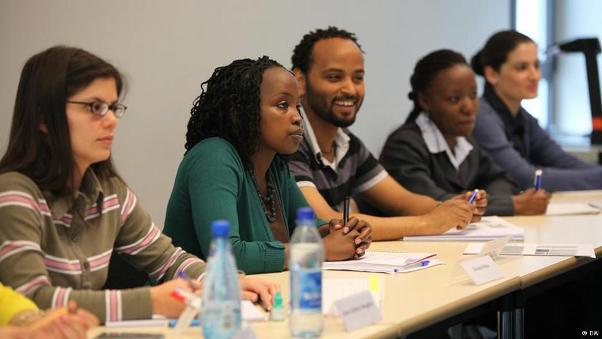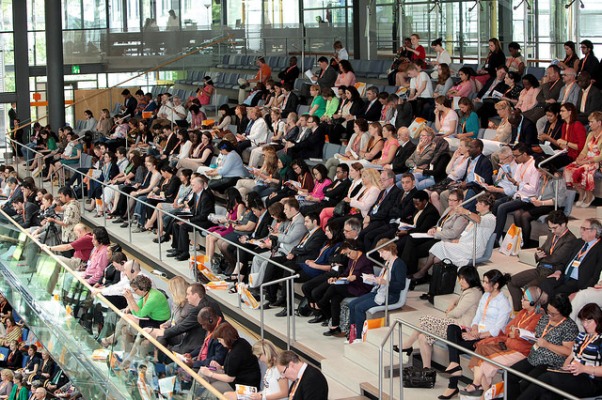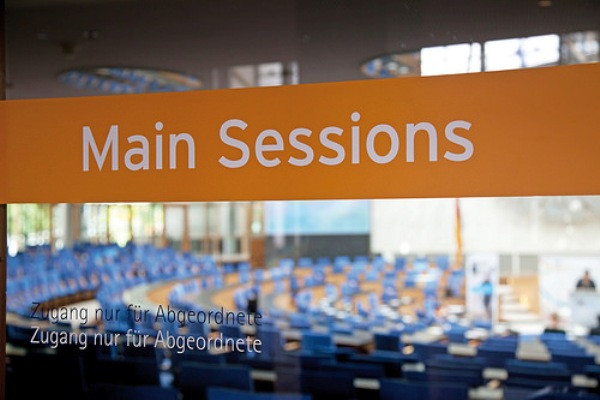Search Results for Tag: Germany
A personal side to the refugee crisis
The massive influx of refugees into Europe presents a challenge for journalists to cover a story that has been saturated in the European media and somehow lost the human element behind the noise of statistics and politics. The voice of refugees themselves can become lost in the clamor and seeing their stories close up and first hand delivers a poignant and valuable perspective.
DW’s Documentaries and Reports is adding a personal angle to the refugee story with #MyEscape, a documentary special that shares what it is like to come to Europe as a refugee. Using videos and photos that refugees took themselves along the way combined with revealing interviews, #MyEscape allows the refugees to tell this important story in their own words.
The international and cultural expertise at DW played a huge role in conducting follow-up interviews in the refugees languages and in establishing an atmosphere of trust where people felt comfortable telling their stories.
#My Escape will air starting February 13 and is produced in cooperation with WDR and Berlin Producers.
How to bring together theory and expertise to train international journalists
Many journalism degree programs can miss providing students with a clear set of skills to be effective in the workforce. Many universities, especially in developing nations, lack the technical resources to provide students with these skills, leaving that part of their education to internships, which are not always structured or guarantee that the student will acquire practical expertise.
Journalism does not exist in a vacuum. It’s essential that journalists, especially those working in international contexts, understand the different social, political and economic frameworks in which events play out – but an educated mind requires educated hands.
DW Akademie, in cooperation with universities in Bonn, puts the resources of a world-class broadcaster in the hands of students. Those who earn a place in the International Media Studies (IMS) Master of Arts program receive a one-of-a-kind educational opportunity, combining the professional competence of DW with the high academic standard at the University of Bonn and the Bonn Rhein-Sieg University of Applied Sciences.
IMS takes a theoretical approach and backs it up with practical experience leaving graduates with a cohesive skill set that will enable them to know what they are doing and why. The curriculum includes everything from media systems and media management to globalization and development studies – all combined with hands-on projects.
The students are another important part of what makes IMS special: They come from all over the world. IMS is aimed at aspiring media professionals from developing countries who will be able to put their education to work where it is needed most.
The wide-range of master’s theses attest to the diversity of each IMS class. Two recent graduates produce Multicoolty, an entertaining blog that profiles life in Germany from the perspective of foreigners. Another group of students worked on a research project examining press coverage of Egypt. Intriguing research on international media is also published in the context of IMS.
IMS is currently accepting applications for the upcoming class. Important information from the program requirements to costs and logistics can be found in the FAQ. If you are interested in becoming an IMS student, don’t miss this unique opportunity. Prospective students have until March 31, 2015 to apply.
Journalisitc expertise has helped define the Global Media Forum
An important part of DW’s mission is sharing its 60 years of journalistic and media experience with the world. DW has organized a number of events at the 2014 Global Media Forum in cooperation with organizations and partners which represent the high level of expertise at Germany’s international broadcaster.
Complementing the focus of this year’s conference is a panel organized by the DW Akademie that explores the state of participatory and community-based media in developing countries. The session titled, The power of the neighborhood: How local media organize participation and how DW Akademie supports this, showcases three projects that foster grassroots journalism from partner organizations that span the globe – Welad Elbalad Media Services from Egypt, Open Development Cambodia and Plataforma de Periodismo from Colombia.
With a focus on the watchdog role of journalism is a session titled Whistleblowers, activists, journalists: Is advocacy journalism the journalism of the digital age? The panel includes an editor from Zeit Online and a professor of entrepreneurship and media literacy from the Walter Cronkite School of Journalism and Mass Communication at Arizona State University. The emphasis is on how digital media allows journalists to shed their neutrality and take an active stance on social issues.
Those interested in the EU and public participation should look at a session titled, Turning disinterest into engagement through innovative media formats. Hosted by DW in cooperation with the Institute for Foreign Cultural Relations (ifa), the discussion explores innovations in social media and journalism that are combining to increase citizen engagement in social issues, particularly with the context of EU policy and elections.
At the intersection of social media and human rights is a talk hosted by DW titled, Revolution postponed. The Arab Spring and Africa The discussion brings together African social media experts and journalists to analyze the state of social movements all over Africa, whether it is the Arab Spring in the north to political protests everywhere from Angola to Zimbabwe. The panel will explore if the movements have lost momentum and what the future may look like.
How to create democracy and promote development with digital media
Digital media is changing the world and giving more people everywhere the chance to have their voices heard and participate in social processes. This year’s Global Media Forum will explore the complex diversity of these issues along with experts, policy makers and interested guests from all over the world. With so much to choose from, we wanted to highlight some events and partners that you should look for at this year’s conference.
A session hosted by the German Development Institute titled, Transcultural understandings of legitimacy: A pre-condition for global governance?, will explore the effectiveness of international institutions in achieving legitimacy on the ground in the different countries and cultures where they operate. The focus will be on increasing trans-cultural dialogue in order to create common values and common solutions.
The Friedrich Naumann Foundation for Freedom is hosting a panel discussion that will explore how social media is helping foster democracy around the world. The session titled, The role of (social) media in promoting and sustaining democratic governance, features guest experts from Lebanon, Egypt, India and Myanmar who will discuss how social media initiates and even stabilizes processes of social change.
A plenary discussion hosted by ASHOKA titled, Room for all? How social entrepreneurs in media are forging a new infrastructure for participation, explores the changing structure of global media. The discussion focuses on the role of the media and audience in light of digital media and where the traditional information power structure is changing to allow for the creation of a new public sphere. Challenges will be introduced like finding new audiences and financing, how to bring in new participants and ways to create new “information communities.”
A talk hosted by Voices of Africa Media Foundation will feature a case study from Nairobi, Kenya that provided young people living in the cities slums the chance to become reporters. The talk titled, A case study in enabling residents from informal settlements to participate in decision-making, will showcase some results from the project which provides an example from Africa for how disadvantaged people can make their voices heard.
A workshop hosted by Wartburg College titled, A blueprint for building communities: Applying community-building practices to a news media company,” will explore how the traditional business a model has changed for big news organizations and how they can adopt practices from social media to increase their relevance and attract new audiences.
And that is not all! There is much more to see and learn at the 2014 Global Media Forum. The conference starts Monday June 30 and you can follow the events with live updates on Twitter and Facebook or on the press website.
DW elects new Director General

Peter Limbourg will be the new Director General of Deutsche Welle (DW). On March 15, the Broadcasting Board elected the current Senior Vice President of News and Political Information of ProSiebenSat.1 TV Germany as the successor to Erik Bettermann with a clear majority. Bettermann, whose term as DW’s Director General will officially end on September 30, 2013, has been in charge of Germany’s international broadcaster since 2001.
“Together with my colleagues, I hope to further enhance Deutsche Welle’s journalistic standing and its multilingual and multimedia programming. Intensifying DW’s cooperation with Germany’s public service broadcasters ARD and ZDF is another goal I have set myself,” said Limbourg.











Feedback